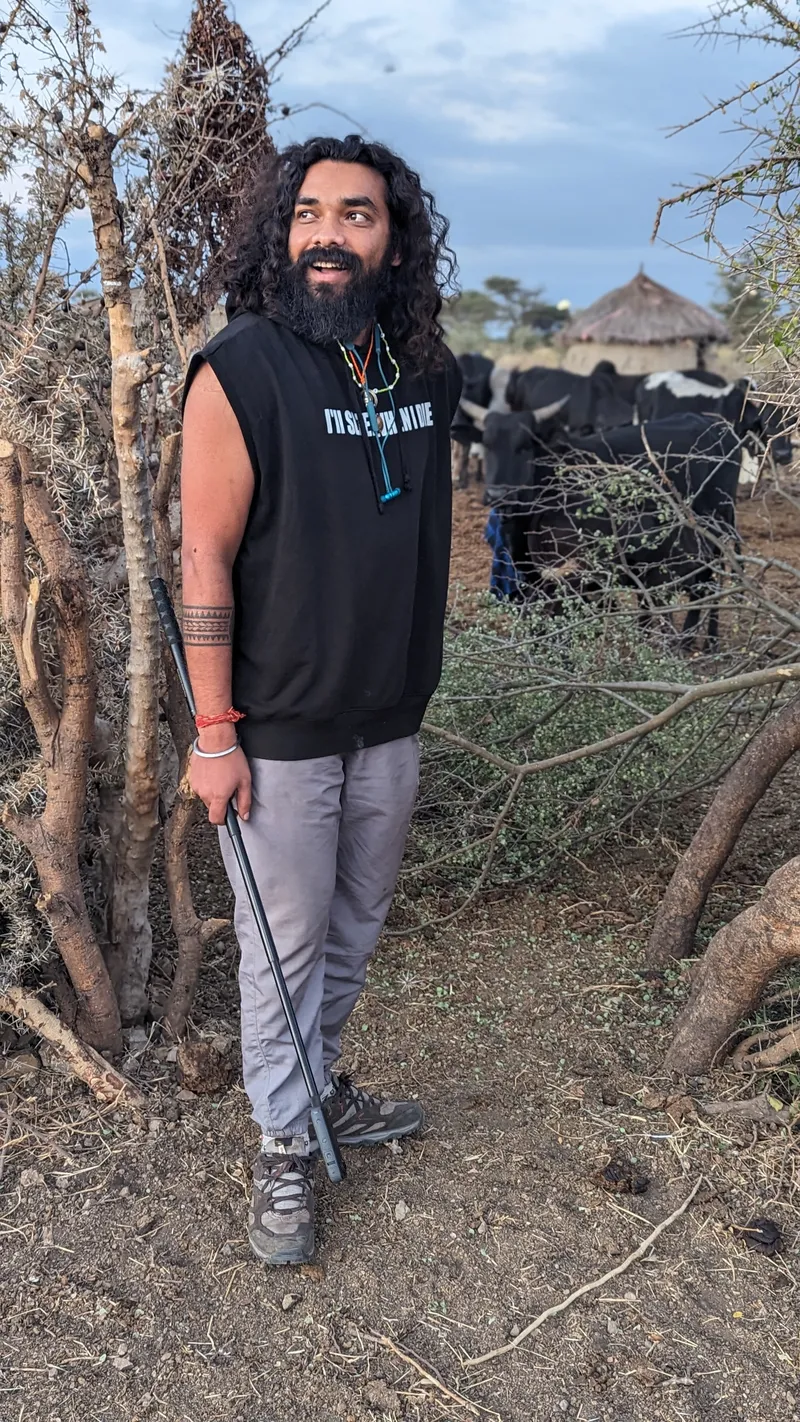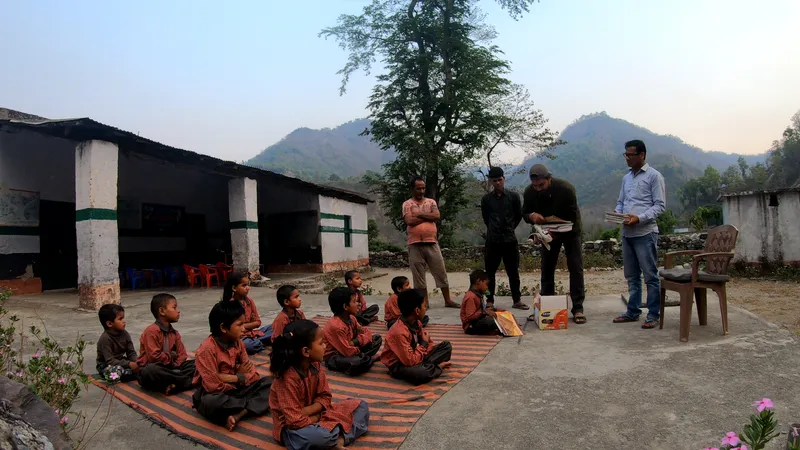This adventure startup is transforming remote Himalayan villages on the go
Planet Trotter is a travel-for-impact social venture that aims to boost adventure tourism and is also working to transform forgotten rural landscapes.
Nikhil Pratap Singh donned the corporate hat in 2015, but the desk job was an ill-fitting cloak for his untamed spirit. With his formative years marked by his father’s service in the Central Industrial Security Force (CISF), Singh was actively involved in sports, co-curricular activities, and community initiatives. From early on in his life, he was into participating in social causes and helping others. These values brewed inside him in all his growing years.
In 2018, he decided to leave the corporate world behind him and founded Planet Trotter, a travel-for-impact social venture. The startup aims to boost adventure tourism and also reverberates with a mission of transforming forgotten rural landscapes.
Planet Trotter was birthed out of a commitment to bring about positive change in the lives of marginalised communities while simultaneously fulfilling his passion for outdoor exploration. The venture aims at catalysing changes in villages across Uttarakhand through various expedition projects.
“I started to explore and soon found myself landing in the lap of adventures such as mountaineering, kayaking, rafting, surfing, and other sports. But there was more to the picture. While I was engaging in these adventure sports in remote locations of Uttarakhand, I saw the struggle of the communities who lived there. I knew I had to do something for them,” he tells SocialStory.
Projects that catalyse changes

Nikhil Pratap Singh
Planet Trotter uses expedition projects as a wand for bringing about socio-economic changes in the community. It promotes offbeat travel to remote places in forgotten or lesser-known villages through its website and via social media.
Singh also believes this will tackle the mass migration of localites to developed places.
The team has conducted six expeditions after COVID-19, which include Uttarakhand Caravan Expedition, Valley of River, and others.
The Uttarakhand Caravan Expedition began in Patnagar and took tourists to places like Tanakpur, where they enjoyed rafting, fishing, and more. They also got to camp with local farmers in Lohaghat.
In the Valley of River expedition in Champawat (Uttarakhand), it involved a 17 km trek across the valley, where trekkers were provided with all safety equipment. During the six-day trek, they were encouraged to live with the locals, and were treated to a host of local delicacies.
Shivanshu, one of the travellers, shared that the expedition was an entirely new and unique experience for him. He expressed his passion for adventure and found this particular journey exceptionally captivating.
“Exploring a remote destination and having the opportunity to connect with the local people, staying with them, all while contributing to the livelihood of the people who hosted us, made this adventure truly remarkable,” he says.
Under Project Dawn, Singh adopted three remote villages--Furkiyajhala, Khirdwari, and Lodiyalsera. He says, some of the common challenges faced by these villages is that they lack basic amenities like access to nearby hospitals, electricity, learning opportunities, and social barriers like lack of awareness around menstruation.
The Planet Trotter team, which has five core members and volunteers, distributed more than 100 sanitary pads to women in Lodiyalsera and Khirdwari villages.
Singh also noticed that the computers at one of the schools were non-functional. He learned that these computers had been out of operation for nine years due to inadequate electricity supply. Singh took the initiative to have six 1.5 kW solar panels installed in the school to ensure uninterrupted operation of the computers. He has also distributed books and educational materials to three government schools in these three villages.
The venture has also helped in fixing trolleys for people to cross the valley without any hassle, has installed hand pumps in villages, and promoted alternative revenue stream for local people like tea plantations, honey bee farming, and others.
Coming together of different worlds
According to Singh, these expeditions provide an opportunity for cultural exchange. He says travel serves as a bridge connecting urban visitors, particularly millennials and Gen Z, with rural communities, fostering positive change in multiple dimensions.
“The inclusion of adventure sports like kayaking and rafting attracts both generations, adding excitement and exploration to the experience. Beyond thrilling activities, these trips provide essential learning opportunities from local stories to heritage sites and the history of the communities visited, deepening the connection with these places,” he says.
The most significant contribution of these expeditions, according to Singh, is to the economy of these remote villages as they bring a source of income to the locals.

The team distributing books and educational materials in schools
He recalls that a group of five people--Vasanth, Sridevi, Krishna, Rohini, and Dolly--joined the Caravan Expedition. These travellers helped Aashish Sharma, a local from Tanakpur, by buying locally-made items like handbags, aluminium water bottles, honey, and more.
This group also extended financial support to local people by staying with them in Almora and in Auli.
The venture is currently not funded and the team members initially used their own money to help the locals. It now uses the money paid by travellers to carry out the activities.
Challenges and future
Speaking about challenges, Singh shares that winning the trust of the locals was difficult. He also shares the various obstacles that were in front of the team as they took a leap of faith to meet their vision.
“It’s not uncommon for social impact ventures to face scepticism, especially when Planet Trotter was just starting out and hardly anybody knew about me or the name,” he says.
While explaining how the venture gained the support of the locals, Singh explains that providing essential amenities that immediately improved the lives of the community members allowed them to establish trust, demonstrating their genuine commitment to the well-being of the villagers.
Looking into the future, Singh explains how the team intends to extend the platform beyond Uttarakhand and cover other parts of the country.
He says, “We believe in immersing travellers in the true essence of a destination, encouraging them to delve into the local culture, language, and ways of life. Our goal is to offer an authentic and responsible alternative to mass tourism, different from the well-trodden paths of travel influencers.”
Singh emphasises the pivotal role of partnerships in driving social initiatives. He called for like-minded individuals and organisations to volunteer, offer sponsorships, and contribute their expertise for impactful engagement.
“Expanding our network by connecting the venture with potential donors, collaborators, and sponsors could significantly facilitate the growth and success of our projects,” he adds.
Edited by Megha Reddy







